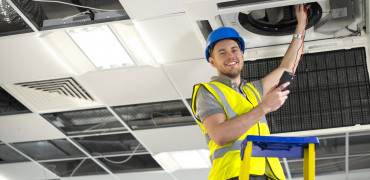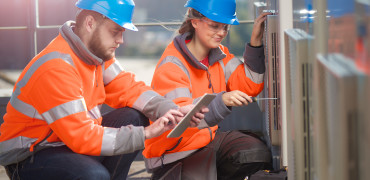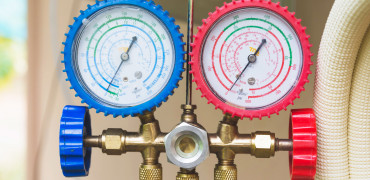I’m getting more and more engineers asking me about the water side of buildings and this is hardly surprising when you see how things are progressing in the world of air conditioning.
Firstly, there is the opportunity to expand your traditional offering by including a heat pump into a quote for a job as, at its core, an air source heat pump is so similar to an AC unit that I’m surprised more engineers haven’t already capitalised on this area for growth.
As I say to the people on my training courses, all of the buildings you install aircon into, also need hot water, so adding an air source heat pump is any easy way to extend your sale AND show your client that you have more to offer than just the fridge side.
And that’s before you even start to consider the growing interest in renewable heating systems which is going to grow the market even more – Who thought we’d now be seeing mainstream TV adverts for heat pumps even just a year ago?
If you don’t have the water-side skills then you will know a company that does
Is the world going hybrid?
The second reason I’m being asked is more directly to do with air conditioning and it concerns our unique Hybrid VRF system, which uses water instead of refrigerant for the majority of the installation.
Hybrid VRF solves several issues facing the industry at the moment. First off, it significantly reduces the amount of refrigerant needed for a VRF install, because the gas is limited to the connection between the outdoor condenser and the branch controller box.
This cuts down the cost of the gas significantly and, with the escalating price of R410A, it will make a real difference to the costs for engineers.
Secondly, Hybrid VRF does away with any need for leak detection in occupied spaces as water is used to transfer heat and cooling around the building. That means it complies with BS EN378 and can seriously reduce the both installation and annual recalibration costs associated with leak detection equipment.
Finally, Hybrid VRF delivers better off-coil temperatures so the comfort levels are better for occupants and it also comes with advanced, energy-saving performance and the latest, web-enabled controls.
Sustainable future business
So as a manufacturer, you would expect us to be excited about this ‘move towards water’, but actually it is more than that because I think both examples point to a healthy and sustainable future for air conditioning engineers – if they are ready to embrace the opportunities it presents.
The alternative is continuing to work with equipment where the actual price of R410A refrigerant is changing week on week and therefore increasingly difficult to quote for.
F-Gas will also continue having an impact on the air conditioning market so further changes are coming and it is best to be prepared by increasing your skill set and the value you can offer your customers.
So, what can you do?
Well, if you don’t have the water-side skills then you will know a company that does, so can easily sub out this element.
At present, while there are strict rules around vented and unvented systems for domestic hot water there isn’t a recognised qualification for the water side of an aircon system.
We would therefore urge everyone to adopt industry best practice but there are also plenty of courses, such as City & Guilds, that it might be worth taking a few days out to qualify for.
Whatever you decide, come on in – the water’s lovely!
Ben Bartle-Ross is a Technical Trainer at Mitsubishi Electric and also writes this column for ACR Journal magazine.



